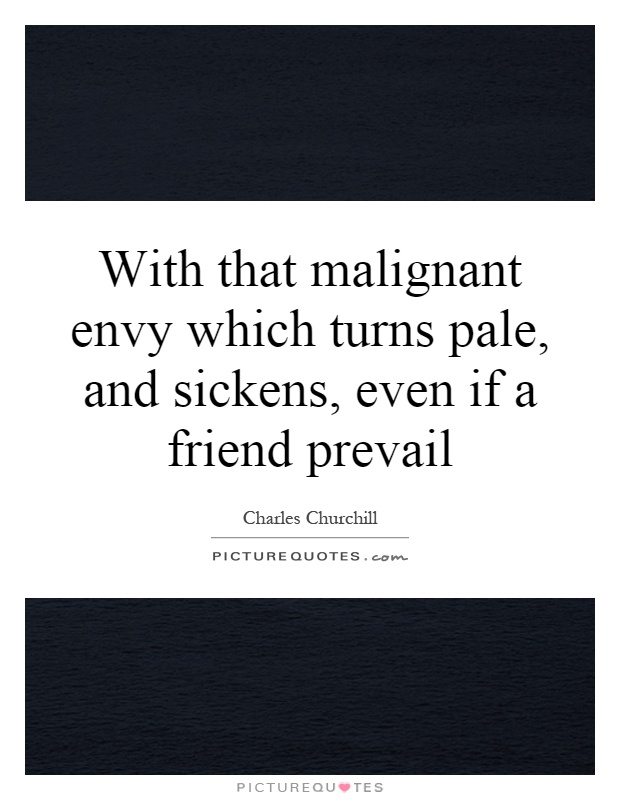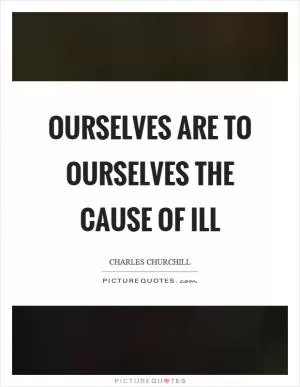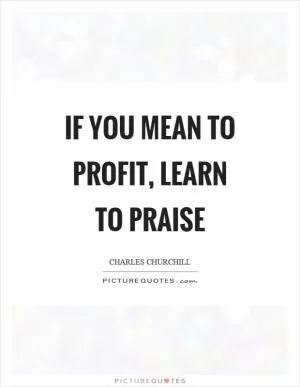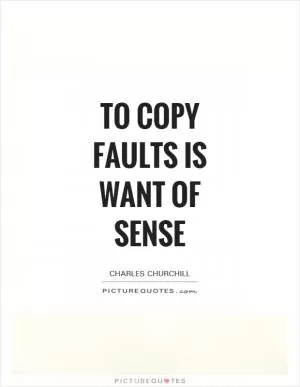With that malignant envy which turns pale, and sickens, even if a friend prevail

With that malignant envy which turns pale, and sickens, even if a friend prevail
Charles Churchill was an 18th-century English poet known for his satirical works that often critiqued the political and social landscape of his time. One of his most famous lines comes from his poem "The Rosciad," in which he writes, "With that malignant envy which turns pale, and sickens, even if a friend prevail." This line captures the essence of Churchill's sharp wit and keen observation of human nature.Churchill's use of the word "malignant envy" suggests a deep-seated resentment and bitterness that can consume a person from within. Envy is a powerful emotion that can drive individuals to act in ways that are harmful to themselves and others. In the context of Churchill's work, this envy is not just directed at strangers or rivals, but even at friends who succeed or excel in some way. The idea that someone could feel envious of a friend's success speaks to the complexity of human relationships and the darker aspects of human nature.
The phrase "turns pale, and sickens" further emphasizes the destructive nature of envy. When someone is consumed by jealousy, it can manifest physically, causing them to feel weak, ill, and drained. Envy can eat away at a person's happiness and well-being, leaving them feeling empty and hollow inside. Churchill's choice of words paints a vivid picture of the toll that envy can take on a person's soul.
The line "even if a friend prevail" suggests that envy can rear its ugly head even in the closest of relationships. Friends are supposed to support and celebrate each other's successes, but envy can create a rift between them. Churchill's observation of this phenomenon highlights the fragility of human relationships and the potential for jealousy to poison even the strongest bonds.












 Friendship Quotes
Friendship Quotes Love Quotes
Love Quotes Life Quotes
Life Quotes Funny Quotes
Funny Quotes Motivational Quotes
Motivational Quotes Inspirational Quotes
Inspirational Quotes